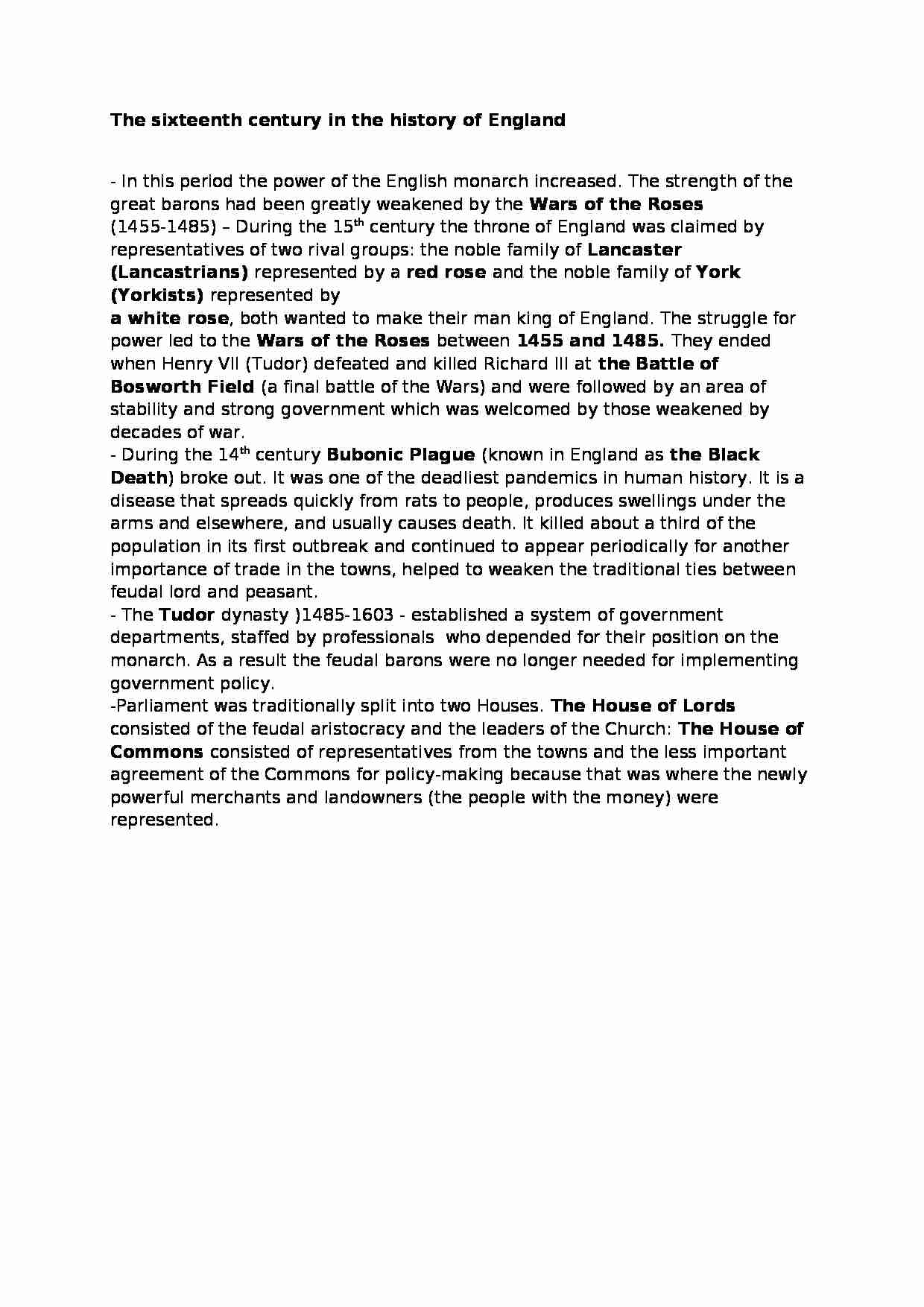
The sixteenth century in the history of England
- In this period the power of the English monarch increased. The strength of the great barons had been greatly weakened by the Wars of the Roses (1455-1485) - During the 15th century the throne of England was claimed by representatives of two rival groups: the noble family of Lancaster (Lancastrians) represented by a red rose and the noble family of York (Yorkists) represented by a white rose, both wanted to make their man king of England. The struggle for power led to the Wars of the Roses between 1455 and 1485. They ended when Henry VII (Tudor) defeated and killed Richard III at the Battle of Bosworth Field (a final battle of the Wars) and were followed by an area of stability and strong government which was welcomed by those weakened by decades of war. - During the 14th century Bubonic Plague (known in England as the Black Death) broke out. It was one of the deadliest pandemics in human history. It is a disease that spreads quickly from rats to people, produces swellings under the arms and elsewhere, and usually causes death. It killed about a third of the population in its first outbreak and continued to appear periodically for another importance of trade in the towns, helped to weaken the traditional ties between feudal lord and peasant. - The Tudor dynasty )1485-1603 - established a system of government departments, staffed by professionals who depended for their position on the monarch. As a result the feudal barons were no longer needed for implementing government policy. -Parliament was traditionally split into two Houses. The House of Lords consisted of the feudal aristocracy and the leaders of the Church: The House of Commons consisted of representatives from the towns and the less important agreement of the Commons for policy-making because that was where the newly powerful merchants and landowners (the people with the money) were represented.
... zobacz całą notatkę



Komentarze użytkowników (0)